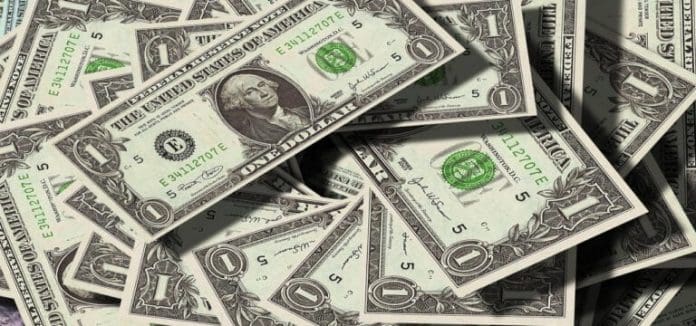With federal stimulus checks on hold due to the political gridlock in Washington, states have stepped in for the first time in a big way. With billions of dollars again pouring into the bank accounts of individuals and families, it has again raised concern about tax liability over such payments.
It was the same situation during the multiple rounds of federal stimulus checks. The IRS had dispelled concern about the payments being chargeable and clarified that the stimulus check payments are not taxable as it is not included in the gross income. People thus would not have to include such payment in their taxable income on their income tax return or pay any income tax on such payment,
It further stated that the stimulus check will also not reduce any refund or increase any owed amount when they pay taxes for the following year.
The stimulus check payment also did not impact the income level to determine eligibility for federal assistance or any benefit programs. Citizens who did not receive a direct stimulus check either through bank transfer, paper checks, or debit cards likely received it in the form of tax credits. It was added to tax refunds or deducted from due taxes.
Are Taxes Payable On Stimulus Check
Millions of Americans across more than a dozen states have already received stimulus checks directly into bank accounts this year, in the form of paper checks or debit cards, or as rebates against any tax payable. The numbers are set to increase as the Biden government has moved away from any further stimulus checks for now.
And most recipients of such state benefits have one big query. Will the state stimulus checks be treated on par with the federal stimulus check and be out of the purview of IRS taxation or will the tax men take a slice of the payments?
The previous 3 rounds of the federal stimulus check that the federal government provided in 2020 and 2021 were designed as tax accredit advances. Consequently, they were not classified as part of the adjusted gross income (AGI) and were naturally not subjected to any federal taxes by the federal authorities.
But things might work out differently for the state stimulus payments. There has not been clarity on how the federal administration will treat the money provided by the states out of their budget surplus funds or fund allocated under the American Rescue Plan Act (ARPA).
The way these payments are categorized will ultimately determine how the payments are classified. It will ultimately boil down to how the payments are finally categorized.
Categorization Of The State Stimulus Checks
If the state stimulus checks, in the form of rebates, direct bank credits, paper checks, or debit cards, are considered as refunds of state tax paid, the income tax filers will not have to declare the state stimulus check money as part of the federal tax returns. But residents who itemize them would have to pay. But like in the federal stimulus payments, if the inflation relief rebates and payments are considered as a rebate and not a refund, they would turn out to be taxable.
With no clarity on this issue by the IRS, it remains unclear how exactly tax authorities will treat such payments. Normally the tax authorities explained that every income is chargeable by the IRS unless it is specifically exempted by law or by a special proclamation.
A few exemptions might be applied for the state stimulus checks. For instance, the rebate or payment by the state could be categorized as a gift and thus non-taxable. It could also be kept within the ambits of a ‘general welfare‘ exemption that excludes certain types of benefits from the ambit of federal income tax.
Should Citizens Save Part Of State Stimulus Checks Payment
But not all state stimulus checks might be considered means-tested or fall within the category of the general welfare. So until official guidance is released by the IRS, there remains a possibility that some taxpayers who received stimulus checks or rebates from their state could end up owing tax on such benefits.
It is because of this lack of clarity from the tax authorities about the taxation rules, it is advisable to set aside a part of the money received from the state. and if eventually, you end up owing tax on the state stimulus check, you will not be caught unprepared and struggle to pay more than you had initially anticipated.
It is worth noting that the inflation stimulus checks that have been granted as tax refunds would be more likely to be taxed as they do not alter the gross income of the beneficiaries.
More States Step In During The Last Quarter Of 2022 To Help Residents
More states are stepping in to help their residents as the high inflation rates persist leading to high prices for everything from groceries to gasoline. It has been almost a year since the inflation rate crossed the 8% mark and has consistently stayed at that level.
California has finally begun sending its Middle-Class Tax Rebate to 23 million of its residents, comprising almost 60% of the population. Around 18 million payments will be sent out between October 7, 2022, and January 14, 2023.
Residents with an adjusted gross income (AGI) of up to $250,000 as individual filers and $500,000 as joint filers will receive stimulus checks from the Golden State government.
Individual filers with an AGI below $75,000 in 2020 and joint filers with AGI below $150,000 with getting $350 for each filer plus another $350 if they declare any dependent.
For individual AGI between $75,001 and $125,000 and between $150,001 and $250,000 for joint filers, the payments come to $250 for each. Any dependent will get the same amount.
The highest tier is from individual earnings between $125,001 and $250,000 and joint AGI between $250,001 and $500,000. The payment is $200 for each filer plus another $200 for any dependent.
Residents will get their payments through either direct bank transfers or debit cards. Filers who received the Golden State stimulus check payments will receive it first followed by the debit cards.






